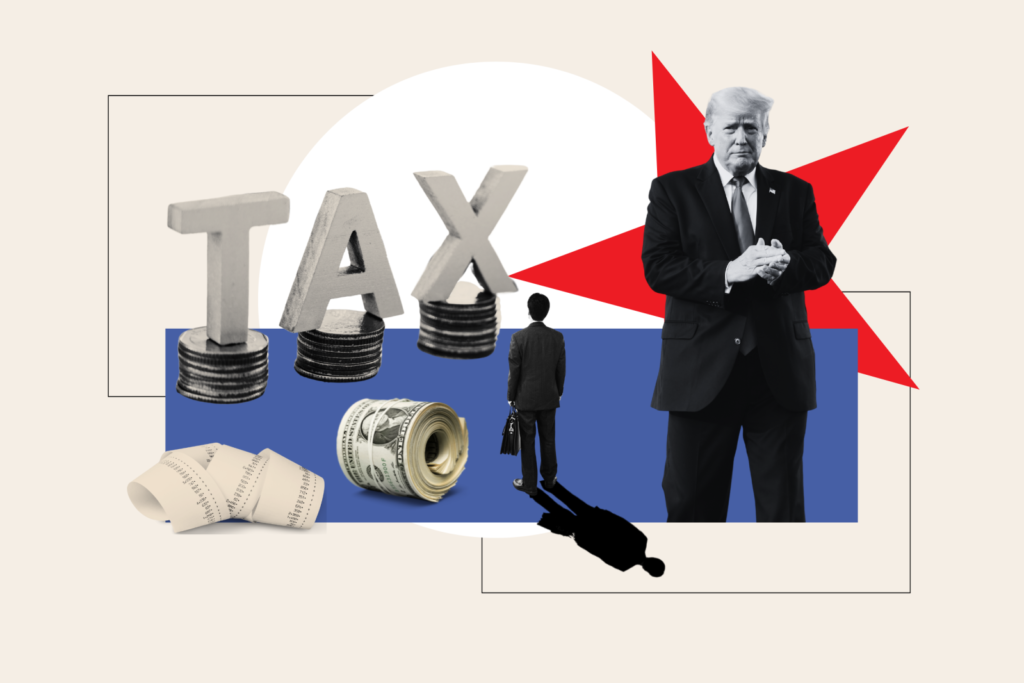Business tax planning is an essential aspect of managing a business. By using effective tax planning strategies, you can legally minimize your tax liability and keep more of your hard-earned money.
The best tax planning strategies for businesses, including small businesses, help slash tax bills. Do you want to know how? Read along to learn how.
What are business tax planning strategies?
Business tax planning strategies are methods and tactics that companies use to legally minimize the amount of taxes they owe to the government. These strategies involve careful financial and operational decisions to reduce tax liability. The goal is to optimize a company’s financial position by managing its tax obligations efficiently.
Understanding the Importance of Tax Planning
Tax planning matters for businesses of all sizes-

- Legal Compliance: Proper tax planning ensures you adhere to all tax laws and regulations, minimizing the risk of audits, penalties, and legal issues.
- Management of Cash Flows: Effective tax planning allows you to allocate funds strategically, improving cash flow management for essential business activities
- Competitive Advantage: Businesses with efficient tax planning strategies often have a competitive edge as they can reinvest their savings into growth and development.
- Financial Stability: Minimizing tax liability contributes to long-term financial stability, enabling you to weather economic downturns and unforeseen challenges.
How can Tax Planning Services help you choose a business structure?
Your choice of business structure has a significant impact on your tax liability. Common business structures include sole proprietorships, partnerships, Limited Liability Companies (LLCs), S-corporations, and C-corporations. Each has its own tax implications.
- Sole Proprietorship and Partnerships: These structures pass-through income to the owners, making them personally responsible for taxes. They are considered favorable for tax planning as they avoid double taxation.
- LLC: Provide flexibility in tax treatment. You can choose to be taxed as a sole proprietor, partnership, S-corporation, or C-corporation, depending on your specific needs.
- S-Corporations: Offer pass-through taxation while providing certain benefits, such as reducing self-employment tax.
- C-Corporations: They are subject to double taxation (at both the corporate and individual levels), but they can provide some tax benefits, particularly for larger businesses
The right choice depends on your business’ size, goals, and financial situation. Consult with your tax advisor to determine the best structure for your specific needs
Understanding Retirement Plans: How do they help you save money on taxes?
Offering retirement plans, such as a 401(k) or a Simplified Employee Pension (SEP) IRA, attracts and retains talent as well as offers tax benefits. Contributions to these plans are tax-deductible, reducing your business’s taxable income. Additionally, these plans can help you save for your own retirement while simultaneously reducing your tax bill. Consult with a financial advisor to determine the most suitable retirement plan for your business.
What role do expense deductions play in business tax planning?
By claiming all eligible deductions, you reduce your taxable income, thereby lowering your tax liability-
- Office supplies and equipment: Computers, furniture, software, and other necessary items.
- Business travel: Expenses related to business trips, including transportation, lodging, and meals.
- Marketing and advertising: Costs associated with promoting your business
- Utilities: Deduct the cost of utilities for your business’s location.
- Health insurance premiums: Small business owners can often deduct health insurance premiums.
Why Hire Tax Professionals for Business Tax Planning?
Hiring tax professionals, such as certified public accountants (CPAs) or tax advisors, can provide valuable insights and ensure tax-saving opportunities.
- Choose the right business structure: The business structure you choose can have a significant impact on your tax liability. Tax professionals can help you choose the best business structure for your specific needs.
- Identify tax deductions and credits: There are many tax deductions and credits available to businesses. Tax professionals can help you identify all of the tax deductions and credits that you are eligible for.
- Develop a tax planning strategy: Tax professionals can help you develop a tax planning strategy that will help you minimize your tax liability over time.
- File your business tax returns: Tax professionals can help you file your business tax returns accurately and on time.
Why is it essential to stay current on tax laws?
It is essential to stay current on tax laws for a number of reasons, including:
- Avoid costly penalties and interest charges
- To maximize your tax savings
- Reduce your risk of being audited
- To make informed financial decisions
How to Benefit from Tax Credits in Tax Planning Services?
Tax credits are a useful tool for lowering your tax obligation. In contrast to tax deductions, which simply lower your taxable income, tax credits cut your taxes dollar for dollar.
There are many different types of tax credits available, including:

- Education tax credits: These credits can help you offset the cost of tuition, fees, and other education expenses.
- Retirement savings tax credits: These credits can help you save for retirement by reducing your tax liability.
- Earned income tax credits: This credit is available to low- and moderate-income taxpayers. It can provide a significant tax break to eligible taxpayers.
- Child tax credit: This credit is available to taxpayers who have children. It can help offset the cost of raising children.
- Adoption tax credit: This credit is available to taxpayers who adopt children. It can help offset the cost of adoption.
Save Taxes and Grow Your Business
Effective tax planning is a crucial component of financial success for businesses. By implementing the right strategies, staying informed about tax laws, and seeking professional advice when necessary, you can significantly reduce your tax burden, improve cash flow, and position your business for long-term success.








